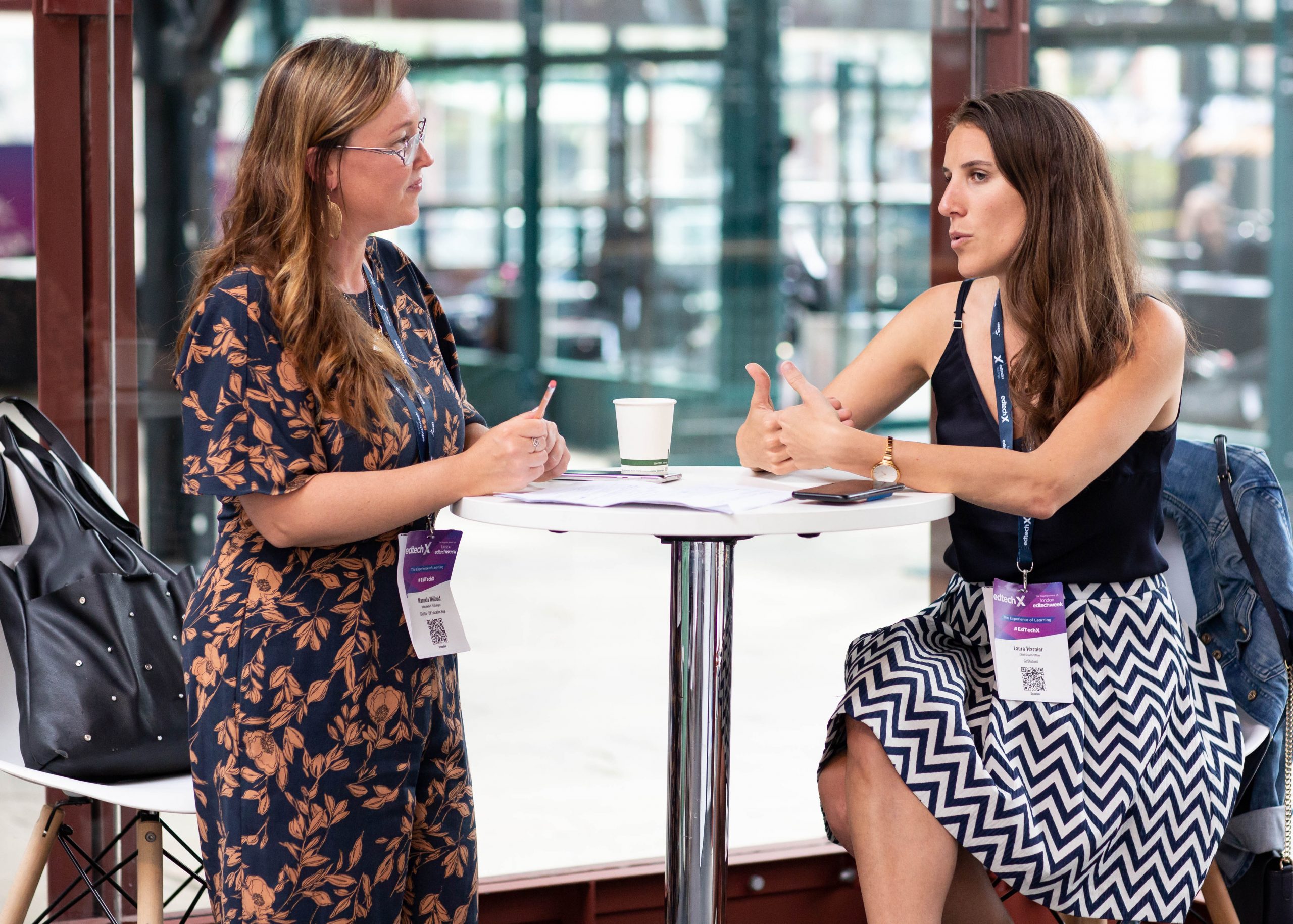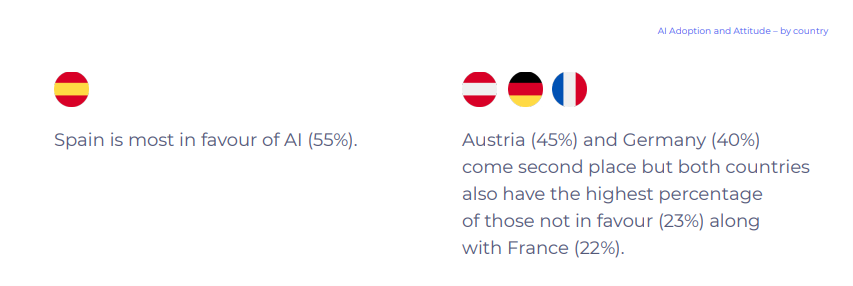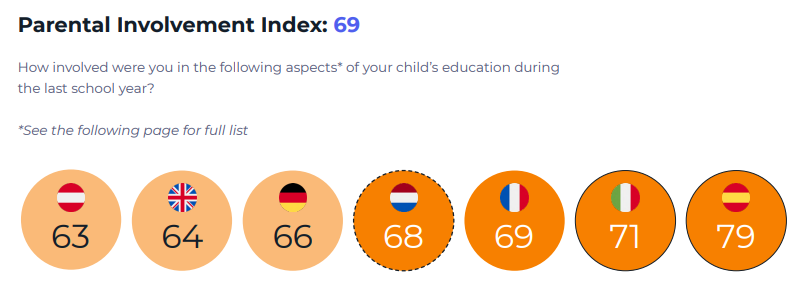The team at the London Business News Magazine and UK Education Blog was excited to meet with the chief growth officer of the online tutoring platform GoStudent, Ms. Laura Warnier, who also held a talk at the London summit titled ‘Scaling Internationally: Shared Experiences from EdTech Leaders’ here are some of our curious questions she answered.

1. What are the key points in education requiring change that you focus on?
“I will give you an example: If you close your eyes and you think about a classroom what do you see? (I answer children at desks in the room). If I ask your mum, the same question she will give me the same answer as she will have the same picture in mind. This shows that for years education has not really changed, and it is difficult to bring change about in education as many things remain as they were. A particular problem is that even today the individual student does not come first. Because it’s mandatory for children to attend school, there’s no need to change certain aspects.”
“The second focus is digitization in education and we’re working on making a hybrid model of online and in-person teaching and learning a reality. Through our GoStudent Education Report in 2021 we understood the challenges that arose during the pandemic and the feedback from many students and parents was that they missed the social interactions at school. We also learned that online learning needs improvements in terms of how we work with data to make the experience more customized and that governments differ in terms of their openness towards online learning. Spain had the lowest scores for learning gaps and the highest parental wellbeing index. In comparison countries like Germany scored highly for learning gaps and parental wellbeing was at the bottom. So, the key lies in using the education technology with caution, but effectively to ensure that teachers can do what they do best, which is to better understand and support their students.”
2. How can students worldwide access education to develop their full potential?
“Again, customisation is key here as the focus should be on the individual student and their choice of the learning intensity and the purpose depending on what they want to do later in life. At GoStudent we don’t dictate what students should learn, but the main focus is that they excel at what they learn to develop their full potential. Experimenting with Artificial intelligence helps us with testing and monitoring students’ performance to match them with the ideal learning interests such as hobbies and their learning style. Once we have a good understanding of their profile, we can match them with the most suitable tutor.”
“Because we realised how beneficial it is for the students to study with an online tutor they can connect with and that matches their profile in terms of common interests, personalities, etc. Measuring success remains a challenge as this has been mainly established through testing with exams. But what if we can also include measuring happiness? Is it only about getting good grades or actually enjoying the learning experience? When we hear the feedback from parents after a trial online session, saying that for the first time they saw their child smiling after a Mathematics session, we know it truly matters as children don’t lie.”
3. How can digital education contribute to female students across the world developing entrepreneur and leadership skills?
“I think it is down to confidence. Being an entrepreneur is not a skill, but rather a competence and state of mind. It’s about being comfortable with taking risks and being ambitious, which is directly linked to confidence. Especially during the teenage years developing confidence is crucial as social media pressures and learning difficulties can cause certain insecurities and especially among girls, this can be seen as they often don’t like to ask questions. So, in the classroom failure should be accepted as learning hence why it’s more about working on competencies than skills. And often female professionals don’t get the recognition as they may be more in the background doing really good work, but not putting themselves out there because they analyse every detail and feel they must be perfect.”

4. How has technology or EdTech helped you to develop your career?
“To be honest I don’t think EdTech has helped me as I don’t remember using it much at school, only at university mainly. I think what really mattered was my environment and that I was told that education was important. I was expected to succeed at school and pass my exams even though I was able to follow my hobbies in exchange for good school results. Most of the learning at school is closely linked to relationships and social interactions. I remember playing with older children and acting as their teacher, giving them exercises and I was correcting them. So, I was already showing some leadership and entrepreneurship competencies in those interactions. But the classroom of course gives you the basics in a structured manner.”
5. How do students, education systems, and cultures differ around the world, and how does GoStudent take this into consideration?
“We see similarities and differences in every country. Online tutoring is something everyone needs worldwide. But markets differ. In Germany for example tutoring is about solving a problem, namely getting better grades at school and this is the so-called painkiller approach. So, parents will search for learning support for specific subjects hence why we get a lot of search traffic from Germany throughout the whole year, but even more towards the final exams.”
“In Greece tutoring is considered a normal part of schooling for just a few hours weekly to ensure the students are on the right track and thoroughly understand what is taught at school. So, here the demand is usually higher at the beginning of the academic year and then it decreases. It could therefore be considered more like an added vitamin approach. In Greece, many schoolteachers also offer private tutoring. Overall, our message is that online tutoring is something positive and that nobody should be ashamed for using online tutoring. It should be used as a tool to improve a student’s confidence and considered a partner on the learning journey.”
6. What are the challenges of making education globally accessible?
“Obviously being able to teach online improves accessibility globally and makes learning more affordable. But of course, there are still accessibility challenges for the more disadvantaged children, and we don’t have all the answers for this yet as we’re still a young company. We must be profitable, but we are looking into how we can work with other companies or private foundations to get them to invest in future generations and future leaders. We have acquired Seneca Learning, which is a tool that provides content for teachers and students. With the help of basic AI, we experiment with users who can go through questions related to their topics of study. It’s freemium so users can access the free version and then if they pay 5 Euros a month, they have access to the full service. This is much more affordable while still offering high-quality education.”

Ms. Laura Warnier referred to the GoStudent Education Report in 2021 in this interview and some interesting key findings can be found here that we touched on.


We thank her for her time and insightful answers.
Author Profile

- Online Media & PR Strategist
- As the Chief of Marketing at the digital marketing agency ClickDo Ltd I blog regularly about technology, education, lifestyle, business and many more topics.
Latest entries
 Key ServicesJanuary 15, 20266 Top Painters and Decorators in London
Key ServicesJanuary 15, 20266 Top Painters and Decorators in London Living in LondonNovember 2, 20259 Cheapest Areas to Rent in London
Living in LondonNovember 2, 20259 Cheapest Areas to Rent in London Health & BeautyOctober 16, 202513 Best Gyms in London to Keep Fit and Healthy
Health & BeautyOctober 16, 202513 Best Gyms in London to Keep Fit and Healthy EmploymentSeptember 25, 2025How to Make Money in London (9 Best Ways to Earn Extra Cash)
EmploymentSeptember 25, 2025How to Make Money in London (9 Best Ways to Earn Extra Cash)


